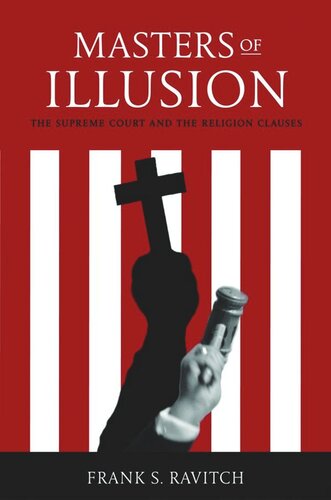

Most ebook files are in PDF format, so you can easily read them using various software such as Foxit Reader or directly on the Google Chrome browser.
Some ebook files are released by publishers in other formats such as .awz, .mobi, .epub, .fb2, etc. You may need to install specific software to read these formats on mobile/PC, such as Calibre.
Please read the tutorial at this link: https://ebookbell.com/faq
We offer FREE conversion to the popular formats you request; however, this may take some time. Therefore, right after payment, please email us, and we will try to provide the service as quickly as possible.
For some exceptional file formats or broken links (if any), please refrain from opening any disputes. Instead, email us first, and we will try to assist within a maximum of 6 hours.
EbookBell Team

0.0
0 reviewsMany legal theorists and judges agree on one major premise in the field of law and religion: that religion clause jurisprudence is in a state of disarray and has been for some time. In Masters of Illusion, Frank S. Ravitch provocatively contends that both hard originalism (a strict focus on the intent of the Framers) and neutrality are illusory in religion clause jurisprudence, the former because it cannot live up to its promise for either side in the debate and the latter because it is simply impossible in the religion clause context. Yet these two principles have been used in almost every Supreme Court decision addressing religion clause questions.
Ravitch unpacks the various principles of religion clause interpretation, drawing on contemporary debates such as school prayer and displaying the Ten Commandments on courthouses, to demonstrate that the neutrality principle does not work in a pluralistic society. When defined by large, overarching principles of equality and liberty, neutrality fails to account for differences between groups and individuals. If, however, the Court drew on a variety of principles instead of a single notion of neutrality to decide whether or not laws facilitated or discouraged religious practices, the result could be a more equitable approach to religion clause cases.